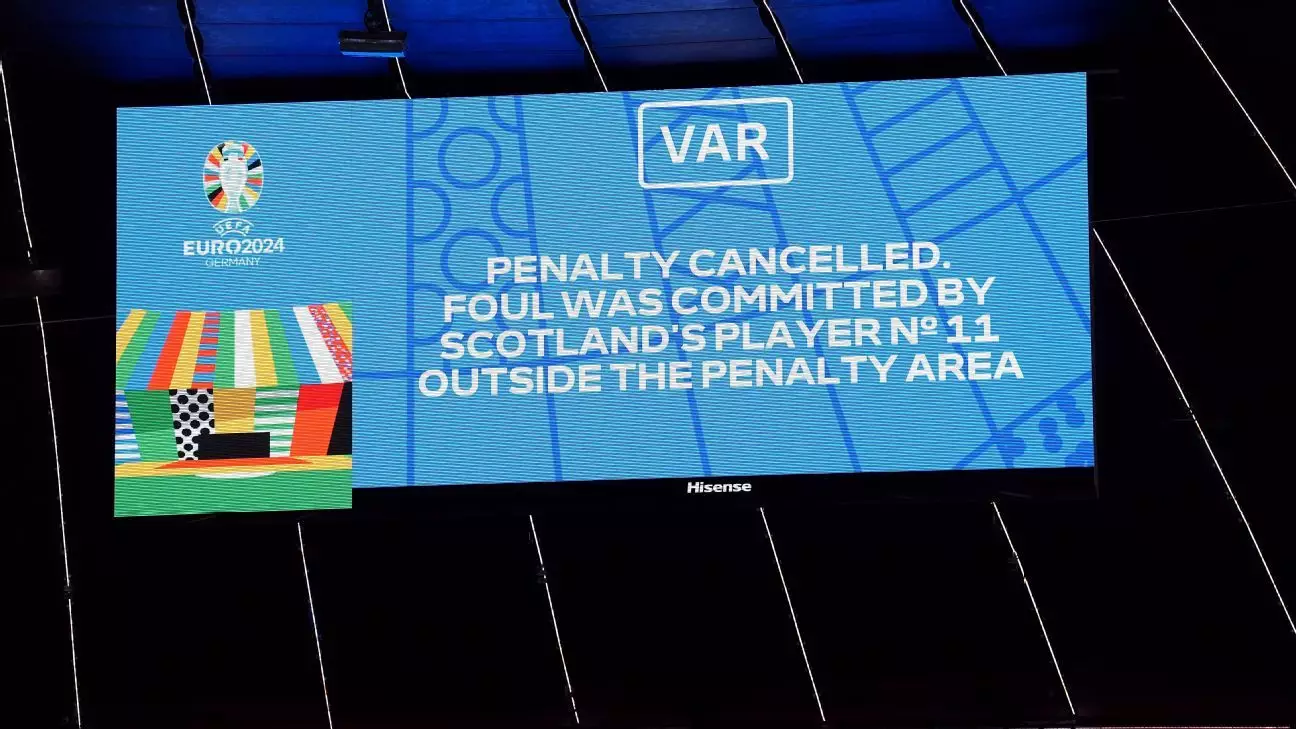Football continues to evolve with advancements in technology, especially in officiating. The International Football Association Board (IFAB) recently approved expanded trials for an innovative alternative to the traditional Video Assistant Referee (VAR) system, called Football Video Support (FVS). This new system allows coaches to challenge on-field decisions, potentially influencing the course of matches in a strategic manner.
The FVS system was initially trialed during the U20 and U17 FIFA Women’s World Cups, where it demonstrated its potential as a viable replacement for VAR in certain contexts. Unlike traditional VAR, which relies heavily on the dedicated infrastructure of advanced camera setups and a video assistant referee, FVS is structured around a more rudimentary approach, utilizing only a handful of cameras—typically between four to five. This streamlined setup makes FVS particularly appealing for leagues with limited resources that may not be able to accommodate the sophisticated VAR system.
In essence, FVS grants coaches an opportunity to question crucial decisions made on the field. Each coach can initiate up to two challenges per match, thus empowering them to take a more hands-on approach to decision-making. This can add an intriguing layer of strategy to the game, as coaches weigh the risks and benefits of using their challenges. While excitement may accompany this empowerment, the IFAB has been explicit in noting that FVS is not equivalent to VAR; its limitations regarding camera angles and video replay capability must be clearly understood to avoid unrealistic expectations.
The introduction of FVS opens doors for leagues that have historically struggled with implementing high-tech officiating systems due to budgetary constraints or infrastructural challenges. For instance, women’s leagues and smaller domestic competitions can leverage FVS to enhance the fairness of the game while managing costs. The FIFA decision-makers highlighted that the aim is not to replace VAR in established top-flight leagues but rather to bridge the gap for organizations that may not have access to advanced technologies. The Women’s Super League, which has encountered challenges with VAR usage due to its diverse range of stadiums, could significantly benefit from the flexibility of the FVS system.
Pierluigi Collina, the chairman of FIFA’s referees’ committee, has expressed optimism about the prospects of FVS, citing a growing interest from various member associations to participate in the trials. This openness to experimentation may indicate a broader desire within the football community to adopt a more inclusive approach to officiating that is responsive to the differences among leagues worldwide.
Operating under the FVS model entails a significant departure from the VAR system’s protocols. When a coach challenges a decision, the referee must assess the replay independently, without the immediate advisory support of video match officials. This aspect is crucial: it places a considerable amount of faith in the referee’s judgment, as they are not pre-emptively informed about potential errors. Instead, the responsibility lies predominantly with the referee to evaluate the situation again through the lens of the replay.
With this added layer of complexity, FVS could yield varied outcomes in officiating quality. Coaches are tasked with providing sound judgment when challenging decisions, and referees must balance the pressure of making split-second judgments when assessing the validity of their calls. On the one hand, this autonomy could increase the credibility and authority of officials, while on the other, it may place them under increased scrutiny should the challenges lead to contentious outcomes.
The recent developments regarding FVS highlight a turning point for officiating in football. As trials are underway, the fate of this innovative system will hinge on its performance and reception. The IFAB’s Annual General Meeting scheduled for March will play a crucial role in determining amendments to the Laws of the Game. Discussions also address trials related to managing goalkeeper behavior and referee communication.
Ultimately, the adaptability of football to incorporate technology will be a pivotal factor in shaping the game. Whether FVS emerges as a successful tool or falls short will set a precedent for how technology influences future policies and practices in the beautiful game.

